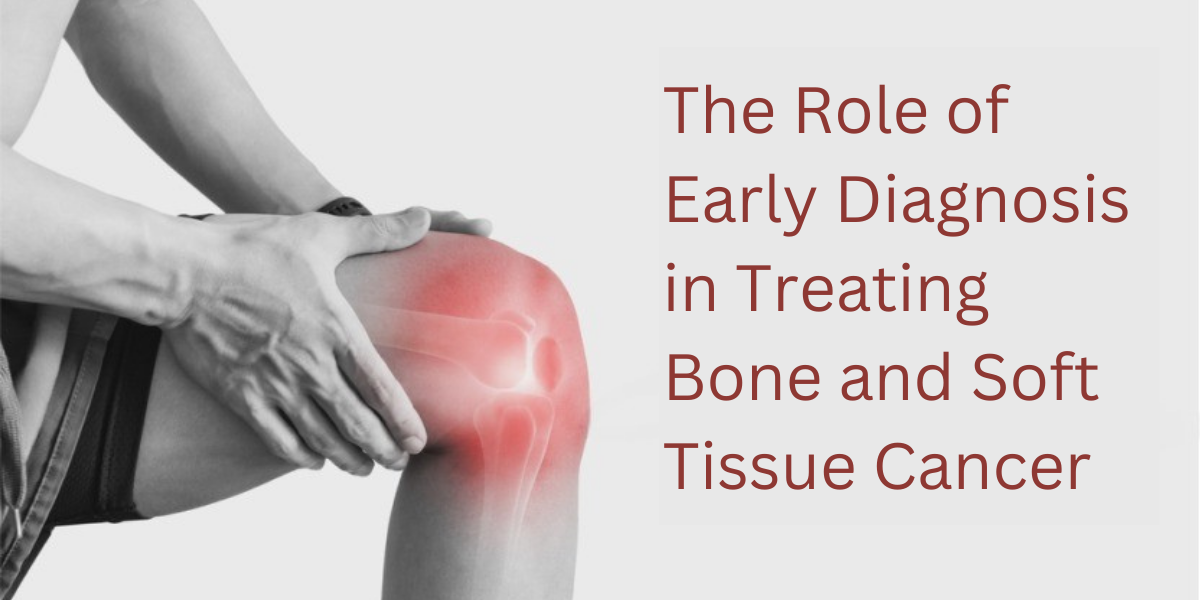How Early Diagnosis Plays a Crucial Role in Treating Bone and Soft Tissue Cancer
Cancer is a word that can affect fear in one’s heart. When it comes to rare cancer such as bone and soft tissue cancer, the feeling of urgency becomes even more important, because this cancer often does not notice anyone until they reach a advanced stage. An early diagnosis plays a crucial role in treating bone and soft tissue cancer. Detecting cancer early can mean the difference between life and death or between a smooth recovery and a challenging journey.
Understanding bone and soft tissue cancer
Bone and soft tissue cancer are relatively rare than other forms of cancer, but they are incredibly severe. Bone cancer itself affects bones, and soft tissue cancer involves tissue that combine, support, or surround the body, such as muscles, fat, blood vessels, and tendons. Soft tissue sarcoma, which can occur in almost any part of the body, can create an important part of these cancer.
Symptoms of bone and soft tissue cancer often come from less serious conditions, which can make early diagnosis more challenging. People may dismiss pain, swelling, or lumps as injuries or other minor issues. However, you should always take these signs seriously, especially if they persist or worsen over time.
Why Early Diagnosis is Critical?
Better treatment options: Detecting cancer early increases treatment options. Cancer surgeons like Dr. Ashish Pokharkar, a renowned cancer surgeon in PCMC, use surgery, chemotherapy, radiation therapy, or a combination of these to treat bone and soft tissue cancer. When detected early, tumors can be removed before they spread, improving the chances of success.
Better Prognosis: A better overall disease is diagnosed in early stage cancer. The survival rate for bone and soft tissue cancer falls significantly with the increase of cancer. For example, localized cancer (which remains at its original site) has a much higher survival rate than cancer that metastasizes (spreads to other organs). Early diagnosis allows doctors to identify cancer before spreading, giving patients a better chance of complete recovery.
Low risk of complications: As cancer spreads, treatment becomes harder and complications arise. Early diagnosis helps prevent metastasis and lowers risks like organ failure, infection, or functional loss.
Less aggressive treatment: Finding cancer early allows for less aggressive treatment. Doctors can treat small tumors with low-intensity surgery or targeted radiation, preserving healthy tissue and reducing side effects.
How can we find out bone and soft tissue cancer quickly?
Early diagnosis requires vigilance, awareness and timely medical intervention. Here are some ways to detect bone and soft tissue cancer:
Regular medical checkup: Regular checkups with your healthcare provider can help catch issues quickly. If you have risk factors such as family history of cancer or previous radiation risk, be sure to communicate with your doctor.
Self-examination: For soft tissue sarcoma, keeping an eye on any unusual lump or swelling, especially if they grow or change, can be helpful. Bone pain that does not improve with rest or deteriorates over time, a red flag should also be increased.
Imaging Tests:Doctors often use X-rays, MRIs, and CT scans to identify bone and soft tissue tumors. When they suspect a tumor, these imaging techniques help assess its size, location, and spread.
Biopsy: If a tumor is identified, a biopsy may be required to confirm whether development is fatal. A biopsy involves taking a small sample of tissue for laboratory testing to determine whether cancer cells are present.
Raising awareness and education
While medical professionals like Dr. Ashish Pokharkar, a leading cancer surgeon in PCMC, play an essential role in early diagnosis, public awareness is equally important. Many people are unfamiliar with the signs and symptoms of bone and soft tissue cancer, leading to delays in seeking medical attention. Spreading awareness about the importance of monitoring abnormal lumps, persistent pain, or swelling can help individuals seek timely medical care.
Bone and soft tissue cancer are not as widely discussed as some other cancers, but they are just as dangerous. Early diagnosis plays a pivotal role in the successful treatment of these cancers. The sooner these cancers are detected, the better the chances of effective treatment, a positive prognosis, and overall recovery. If you or someone you know experiences persistent pain, swelling, or any unusual lumps, don’t hesitate to consult a healthcare professional. The difference that early detection can make is enormous—it could save a life.




